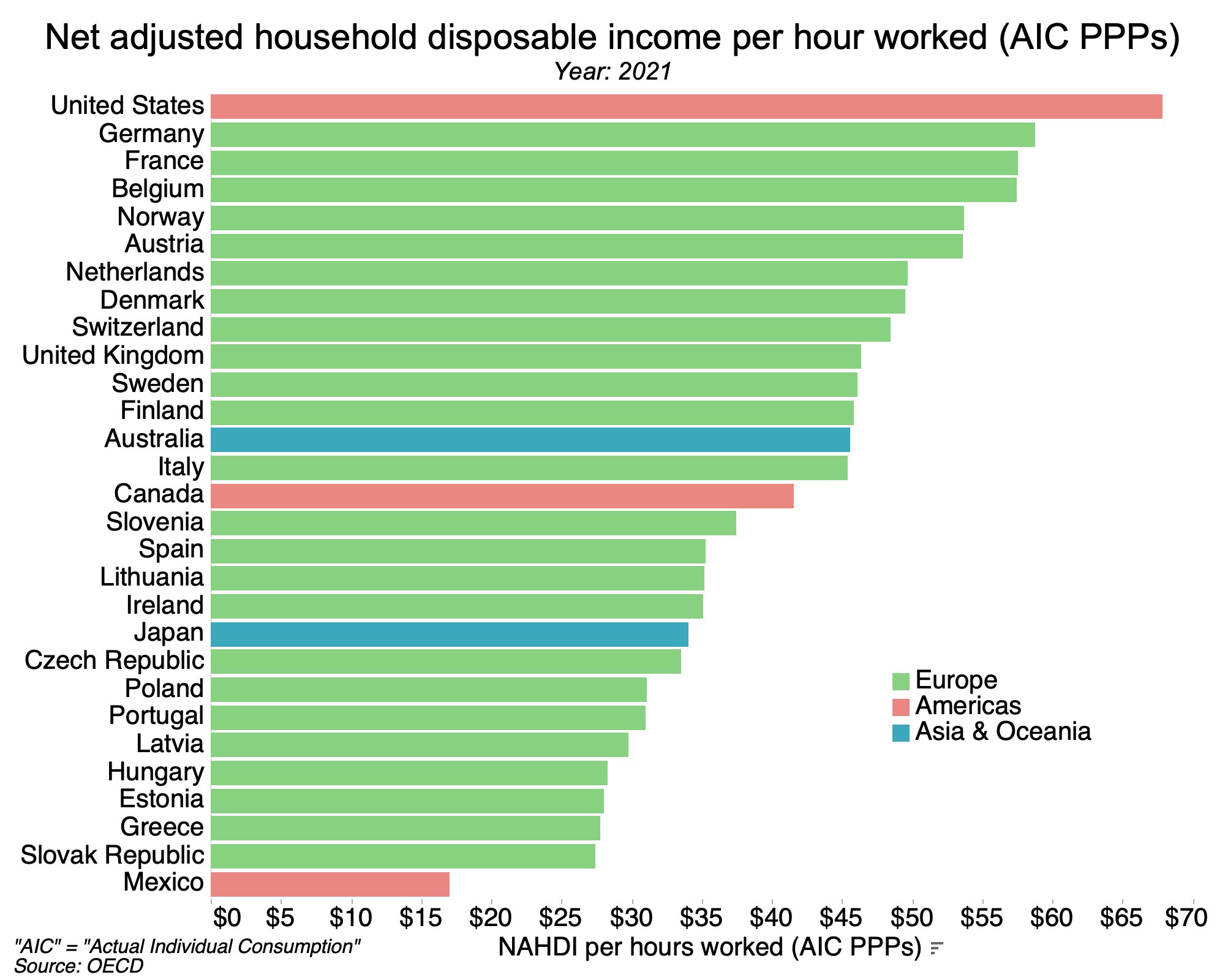The United States has a medium-sized welfare state and nations in Western Europe have large-sized welfare states.
Which approach is better (or, to be more accurate, less worse)?
To answer that question, you want to compare living standards. And that means looking at how much people earn, adjusted for factors such as how much they get to keep after taxes.
The United States wins that contest. Americans earn more and they get to keep more.
That’s apparent when you look at average levels of consumption on both sides of the Atlantic. And it’s even true when you compare living standards of low-income and poor Americans to living standards for average Europeans.
But what if Americans only earn more because they work longer hours? When my left-of-center friends make this argument, my usual response has been that Americans choose to work longer hours because they have better incentives (i.e., lower tax rates).
That’s true, but it’s only part of the story. Here’s some data from the Organization for Economic Cooperation and Development that was shared by Robert Orr of the Niskanen Center. It turns out that Americans also have the higher living standards on a per-hours-worked basis.

I’ll close with a big caveat about the quality of these OECD numbers. While I feel comfortable with the notion that the US ranks above Europe, some of the other countries seem too high or too low. For instance, France ranks well above Switzerland, yet other OECD data shows that per-capita GDP is more than $82,000 in Switzerland and less than $56,000 in France.
To be sure, there can be non-trivial gaps between GDP and living standards (think Ireland). And let’s not forget that the whole purpose of the above chart is to adjust for hours worked, and the French are famous for long vacations and short workweeks.
So hopefully these numbers are not dodgy. But since the OECD peddles dishonest numbers on poverty, some suspicion is warranted.

